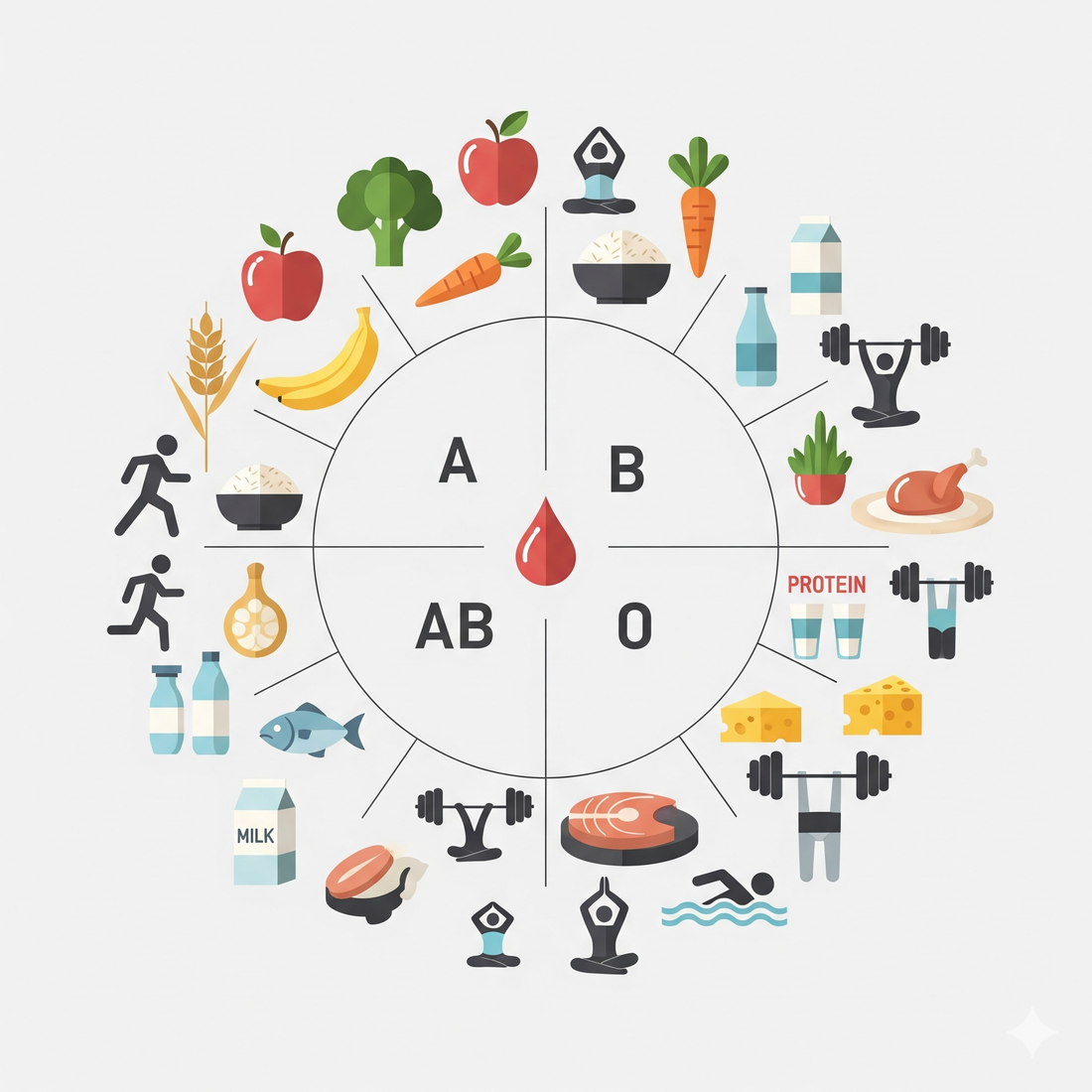Decoding Blood Type Diets: The Connection Between Blood Type, Nutrition, and Well-being

Share
The concept of eating according to your blood type has gained attention in the realm of nutrition and health. Proponents of this approach suggest that tailoring your diet to your blood type can enhance fitness results and overall well-being.Let's delve into the theory behind blood type diets, examine their potential impact on fitness, and offer insights into making informed dietary choices.
The Blood Type Diet Theory: Matching Genetics and Nutrition
The blood type diet theory asserts that your blood type—A, B, AB, or O—determines how your body reacts to certain foods. This theory suggests that our blood type affects our digestive enzymes, gut bacteria, and overall ability to process nutrients. As a result, each blood type is thought to benefit from specific foods and avoid others.
Blood Type and Nutrition: The Breakdown
1. Type O (The Hunter): Individuals with blood type O are believed to benefit from a high-protein diet, similar to what ancestral hunters might have consumed. Lean meats, fish, vegetables, and limited grains are recommended.
2. Type A (The Cultivator): People with blood type A are said to thrive on a plant-based diet rich in vegetables, fruits, and whole grains. They may be advised to limit animal products.
3. Type B (The Nomad): Blood type B individuals are thought to do well with a balanced diet that includes a variety of foods, including lean meats, dairy, and grains. They may be encouraged to avoid processed foods and certain nuts.
4. Type AB (The Enigma): Blood type AB individuals are considered to benefit from a combination of type A and type B diets. They may be advised to include a mix of vegetables, lean proteins, and limited grains.
The Fitness Connection: Can Blood Type Diets Enhance Physical Performance?
While the blood type diet theory has garnered attention, the scientific evidence supporting its claims is limited. Individual responses to foods can vary greatly, and factors beyond blood type play a significant role in nutritional needs. While certain people might experience positive changes by following a blood type diet, the outcomes may not solely stem from blood type itself.
Making Informed Dietary Choices: A Balanced Approach
1. Personalised Nutrition: Instead of rigidly adhering to a blood type diet, consider adopting a personalised approach based on your body's responses to different foods. Pay attention to how your energy levels, digestion, and fitness performance are impacted by your dietary choices.
2. Variety is Key: Regardless of blood type, a diet rich in whole foods, including vegetables, fruits, lean proteins, and healthy fats, forms the foundation of optimal health.
3. Consult a Professional: Before making significant dietary changes, consult a registered dietitian or healthcare professional who can provide tailored advice based on your unique needs and goals.
While the concept of eating according to your blood type offers an intriguing perspective on nutrition, its scientific validity remains a topic of debate. Genetics, lifestyle factors, and individual responses to foods are complex variables that contribute to dietary needs. Rather than strictly adhering to a blood type diet, focus on a balanced, personalised approach that promotes well-being, supports fitness goals, and takes into account your body's unique requirements.
